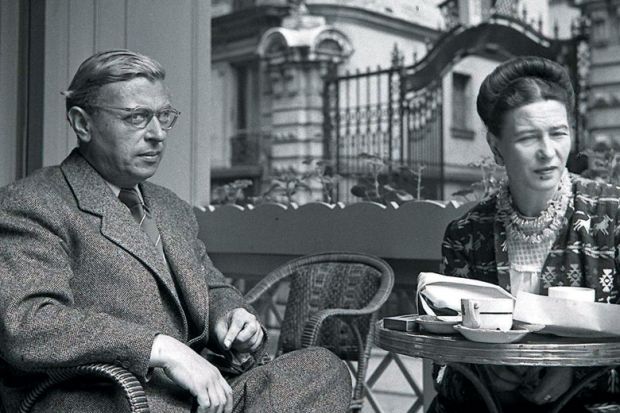If you are looking for a profound interpretation that concerns death, then existentialism must be one of the philosophies you should take into account. Jean-Paul Sartre was born on 21 June 1905, was a French philosopher, playwright, and novelist. His work involves a great deal with modern philosophy.

Is the phenomenon identical to existence? Sartre has asked this question at the beginning of his most famed book: “Being and Nothingness”. The problem of existence has been discussed for centuries, and the elaboration of either phenomenon of being or being of phenomenon unfolds Sartre’s argument. Descartes said: “I think, therefore I am”. But Sartre isn’t satisfied with this answer. Descartes articulated that our perception is not reliable, which could occasionally deceive us. Yet Sartre thinks the phenomenon of being is a part of being of phenomenon, which the subjective phenomenon of being does not suffice to conclude the being. Hence he elaborated: “the being of the phenomenon can not be reduced to the phenomenon of being. (Sartre 49)” This statement is in agreement with Descartes, but Sartre goes further than this. He has particularly mentioned essentialism to build on his theory. Sartre claimed that our sensation that conceives qualities of an object, does not determine the object itself. Instead of producing an “organized-whole”, the essence only tells the meaning of the object. For example, you presume you saw the color “red” because you perceived it. However, Sartre considers that you only saw the quality of the red, but not the essence of it.
“The object does not possess being, and its existence is not a participation in being, nor any other kind of relation. It is. That is the only way to define its manner of being; the object does not hide being, but neither does it reveal being.” (Sartre 49)
Consequently, it is impossible to identify essence through its phenomenon. Yet, Sartre says that existence is a phenomenon, but we are still not able to assure an object’s being by telling its appearance. Before we need to assure something is exist, the necessary step is to be conscious of it. Consciousness, which itself is an empty content, needs to be filling up by things. The action of filling your consciousness does not mean anything, it is futile. Thus, Sartre wrote: “However, the necessary and sufficient condition for a knowing consciousness to be knowledge of its object, is that it be consciousness of itself as being that knowledge. (Sartre 52)” He raised a phrase called consciousness of consciousness and pointed out that we are suffering too much from the illusory of the primacy of knowledge. “To know is to be conscious of knowing. (Sartre 52)” Then he quotes Spinoza to illustrate this, and it might confusing when you first read this. Now think, how would you know that you know you have some sort of knowledge of something? For example, how would you know whether you possess the consciousness of the color red? Well, you have to have the consciousness of consciousness.
What if our consciousness comes to its cessation? We can no longer sense anything after death. Death is a wall that cut off our existence via putting out our consciousness. There are few terms you could manage to comprehend Sartre’s concerns about death: nihility, nothingness, or non-human. An open door towards the contact of nothingness and escaping from reality. In the contrast, philosophers like Malraux disproves Sartre: “Man can no longer encounter anything but the human.” Namely, death is interiorized and humanized. Whereas Malraux has a compelling stand, we may discuss this later.
It is terrible to think that we will all die when the time comes. Christian wisdom suggests people should be prepared for death at any hour. Besides, it has often been said that we are in the identical situation of a condemned man who doesn’t know his day of execution. However, Sartre believes this is not wholly exact. This is a pathetic way of understanding it – death is inevitable, universal, and also individualized – because nobody could die for you. Heidegger said those. He has made death an irreplaceable thing, and it is narrowed in cogito. Anything that can be projected by anyone else but other than me is irreplaceable. Thus the commonplace love, which no one can love for me.
Moreover, Sartre has emphasized the difference between waiting and expecting. “Furthermore death can not be awaited unless it is very precisely designated as my condemnation to death. (Sartre 535)” I wait for Luke to come into the classroom at 7 pm. Of course, he could be late or earlier. Some causes would bring him late. But when we waiting to see whether he is running late or earlier, this is a constrained one-dimensional perspective. That I presumed he will be arriving on time, but there is nothing I can do to change the result. Alternatively, I expect the death is a whole lotta different. Although it is still undecided to know that death will come sooner or later, I can not say that in the next second the death comes sooner or later. I may drink a can of soda, but it is suspense to know whether I will be killed by a sonorous burp or live for another 50 years. In other words, I’m free to die.